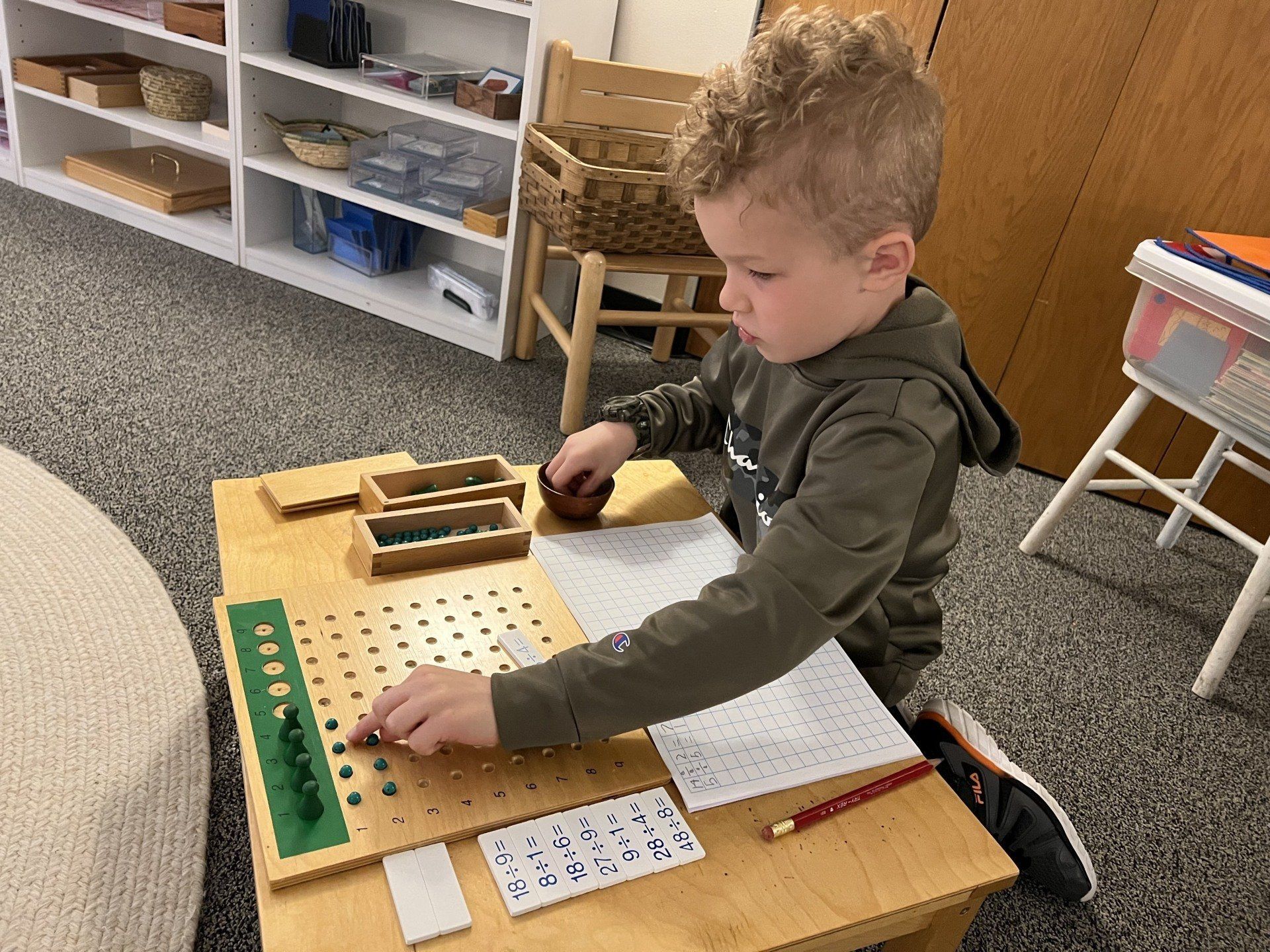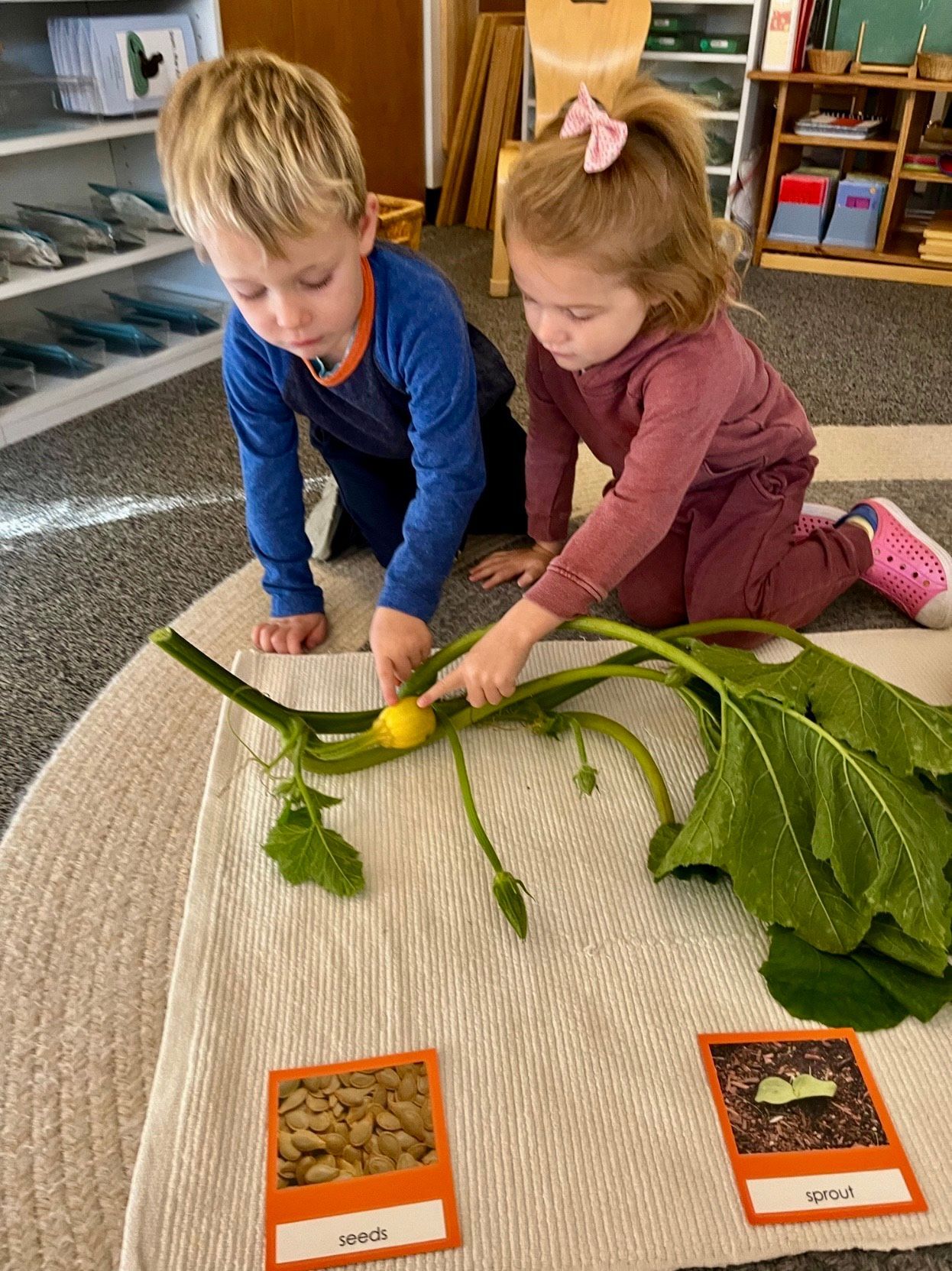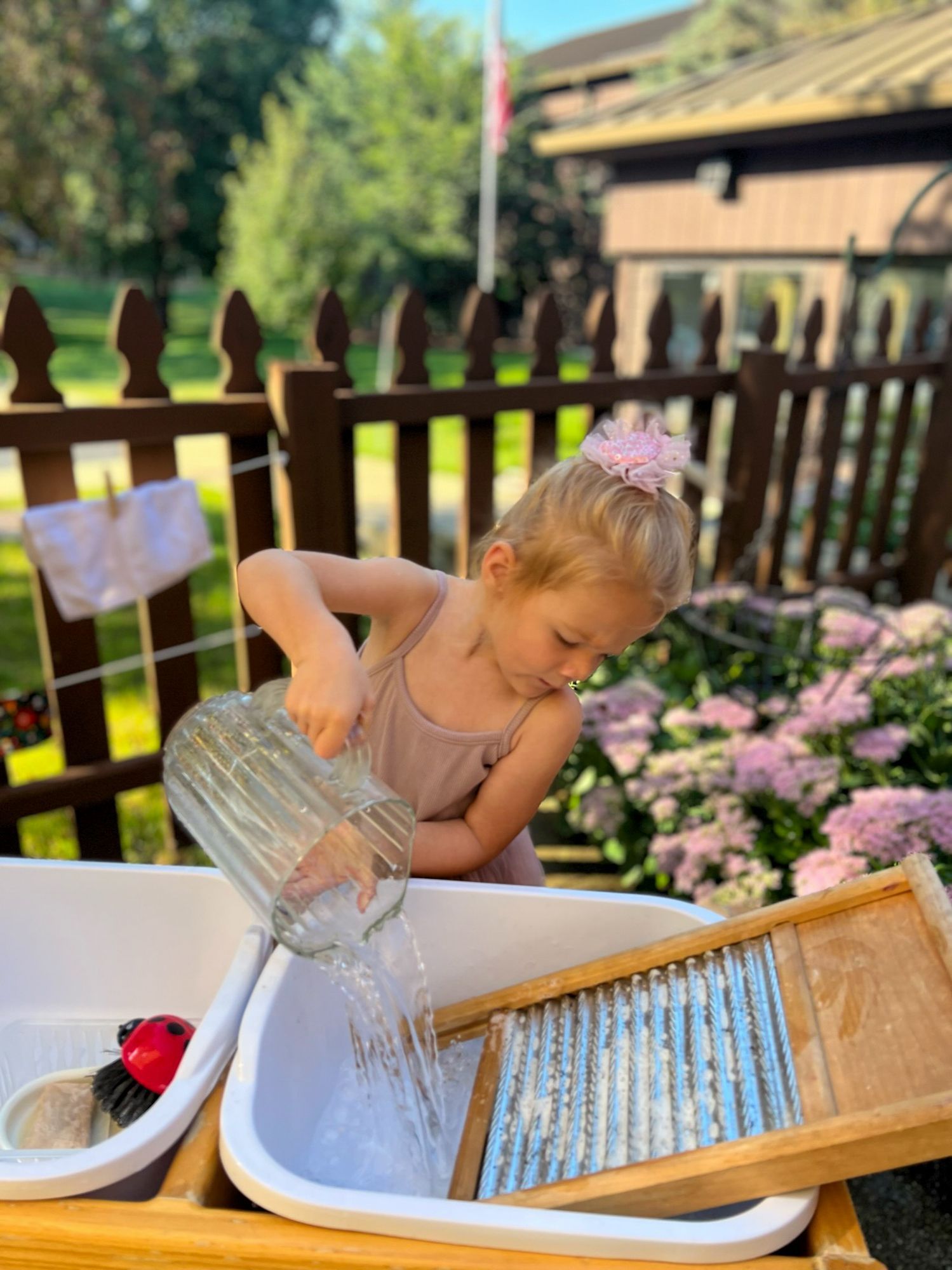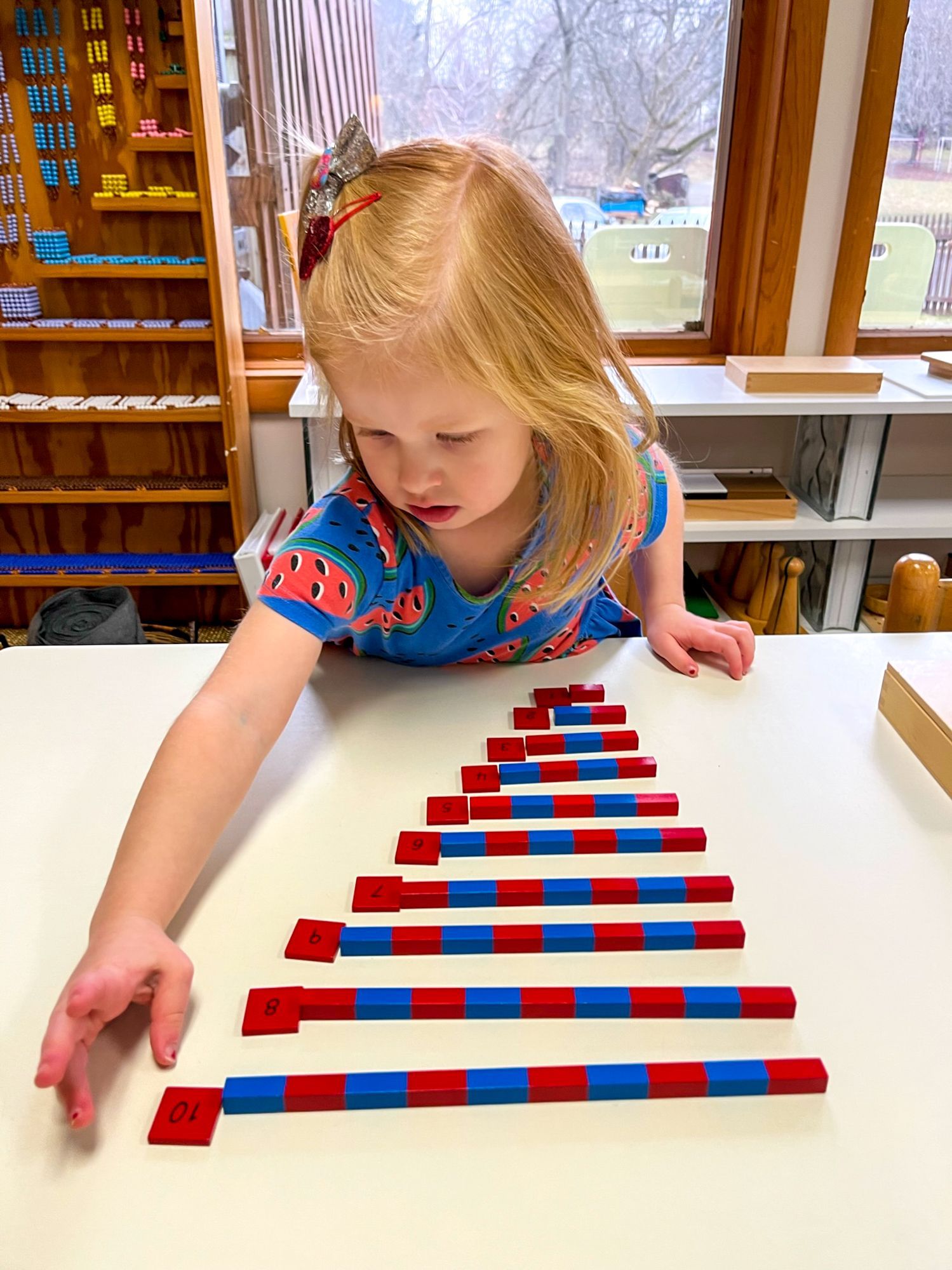Early Childhood
It’s easy to focus on what your child needs to learn at this age. In Montessori, we believe how is just as important.
Our goal is not just to educate students to score well on tests, but to become successful, creative, peaceful global citizens. An essential focus of the Early Childhood program is the development of independence through self-mastery.
In addition to academics, Montessori children are practicing meta-skills like concentration, large and increasingly fine motor coordination, internalizing the discipline required to see a task through to completion, and experiencing the satisfaction of knowing for oneself – not by being praised by an adult or given stickers – that a job is well-done.
We focus on...
Practical Life
Practical life includes four areas of concentration: gross and small motor movement, caring for oneself, caring for the environment, and developing grace and courtesy. The direct aims are to develop and support order, concentration, coordination, and independence in the young child. These areas of development are the foundation for Language and all cognitive work that is to follow.
Sensorial
Your child learns through experiences and impressions which they receive through their five senses. Maria Montessori recognized the need to organize and store these impressions through the training of the child’s sensory system. This order is the foundation for Mathematics and becomes the foundation for refinement of observation skills, discrimination, classification and intellectual growth that bridges your child into the other areas of the classroom.
Mathematics
Maria Montessori’s concept of mathematics was not just based upon the idea of helping children gain knowledge in the conventional sense of learning numbers. She viewed mathematics as a way of thinking, of being able to order thoughts and information, to sequence events, and to analyze relationships. This manner of thinking forms the basis for logical reasoning that is necessary for developing that part of the intellect she called the “mathematical mind.”
Language
A Montessori education aims a providing a whole language experience to further develop receptive and expressive language. This area is divided into six categories with activities for enriching vocabulary, making logical connections, writing, reading, developing creative writing skills, and understanding word function. Working from concrete to abstract, writing is taught before reading, which then comes naturally through a series of exercises designed to inspire a lifelong love of reading.
Culture
A Montessori education aims a providing a whole language experience to further develop receptive and expressive language. This area is divided into six categories with activities for enriching vocabulary, making logical connections, writing, reading, developing creative writing skills, and understanding word function. Working from concrete to abstract, writing is taught before reading, which then comes naturally through a series of exercises designed to inspire a lifelong love of reading.
Child Centered (Not Teacher Centered)
Unlike conventional classrooms, where all children are expected to pay close attention to the teacher, our program does the opposite – the teacher is trained to closely observe your child’s interests, tendencies, and needs. You won’t see the teacher standing at the front of the classroom at a chalkboard, but rather down at your child’s level, engaged with her or a small group.
Our AMS & AMI-certified teachers choose this career because of their love for children and dedication to Montessori. Their depth of training and knowledge is amplified by the joyful and deep relationship they develop with your child throughout their three years with them.
The Gift of Choice
Academic learning occurs through a broad range of concepts and activities introduced in individual and small group lessons, which your child is then able to choose independently to explore, repeat, and perfect. We call these materials on our shelves “works” because each one has a specific learning purpose.
Spanish and Physical Education are part of the weekly curriculum, as well as group activities in which the children sing, listen to a story, or watch a presentation on a scientific, historical, or cultural topic. The children are also encouraged to run, dig, explore, and play with friends outdoors.

A Children’s House
Maria Montessori called her first school Casa dei Bambini, The Children’s House. Our Early Childhood classrooms are warm and inviting with large windows providing natural light and beauty. Each has a full complement of Montessori learning materials, a reading loft, a large patio with gardening space, a bathroom and access to the school playground.
Our teachers put tremendous care and attention to detail into the classroom with low shelves, beautiful artwork, books and cultural items of interest to spark your child’s curiosity and stimulate the senses.
Full & Half-Day Programs
Early Childhood Full-Day Program
Arrival at 8:00 a.m. and dismissal at 3:00 p.m. The full-day experience allows 3-6-year-old children extended, uninterrupted time to concentrate, explore and experience the Montessori environment.
The daily schedule offers a three-hour morning work cycle, lunch, time in the gym, outdoor recess (weather permitting), community, “rest time” with quiet activity, and an additional afternoon work cycle with special projects relating to our curriculum.
Early Childhood Half-Day Program
Morning classes begin at 8:00 a.m. with dismissal at 11:00 a.m. This program is five days a week.

“The instructions of the teacher consist then merely in a hint, a touch—enough to give a start to the child. The rest develops of itself.”
- Dr. Maria Montessori
Programs
Parents
School Office hours
Monday - Friday 8:00 am - 3:30 pm
Service Area
Proudly serving Algonquin, Barrington, Carpentersville, Cary, Crystal Lake, Fox River Grove, Harvard, Huntley, Johnsburg, Lake in the Hills, Lakewood, Marengo, McCullom Lake, McHenry, Prairie Grove, Sleepy Hollow, West Dundee, Woodstock, Wonder Lake
Accreditation
We are fully accredited by the American Montessori Society and DCFS-certified for Birth-3 and Illinois State Certified up to 8th Grade.



